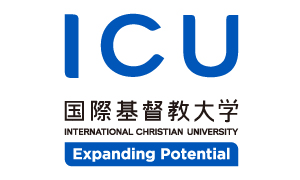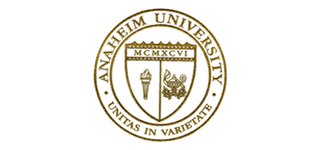
English as a second or foreign language is the use of English by speakers with different native languages. Language education for people learning English may be known as English as a second language (ESL), English as a foreign language (EFL), English as an additional language (EAL), or English for speakers of other languages (ESOL). The aspect in which ESL is taught is referred to as teaching English as a foreign language (TEFL), teaching English as a second language (TESL) or teaching English to speakers of other languages (TESOL). Technically, TEFL refers to English language teaching in a country where English is not the official language, TESL refers to teaching English to non-native English speakers in a native English speaking country and TESOL covers both. In practice, however, each of these terms tends to be used more generically across the full field. TEFL is more widely used in the UK and TESL or TESOL in the US.

Champlain College is a private college in Burlington, Vermont. Founded in 1878, Champlain offers on-campus undergraduate and online undergraduate courses through Champlain College Online, along with online certificate and degree programs and master's degree programs, in more than 80 subject areas. Champlain enrolls 2,200 undergraduate students on its Burlington, Vermont campus from 44 states and 17 countries.

Hankuk University of Foreign Studies is a private research university based in Seoul, Republic of Korea. It is considered one of the most prestigious private universities in South Korea as well as being considered the most global university in the nation. HUFS currently teaches 45 foreign languages. In addition, it contains studies in humanities, law, social sciences, business, medical science, natural sciences, and engineering.

International Christian University is a non-denominational private university located in Mitaka, Tokyo, Japan, commonly known as ICU. With the efforts of Prince Takamatsu, General Douglas MacArthur, and BOJ President Hisato Ichimada, ICU was established in 1949 as the first liberal arts college in Japan. Currently the university offers 31 undergraduate majors and a graduate school. The Ministry of Education, Culture, Sports, Science and Technology selected ICU as one of the 37 schools for The Top Global University Project in 2014.
Boricua College is a private college in New York City. The college was designed to serve the education needs of Puerto Ricans and other Hispanics and was founded by Victor G. Alicea and several others.

Providence University College and Theological Seminary is an interdenominational evangelical Christian university college and theological seminary located approximately 50 kilometres south-east of Winnipeg in Otterburne, Manitoba.

KIMEP University is an institution of higher education in Almaty, Kazakhstan. KIMEP is a private, non-profit university offering credit-based, North American-style bachelor's, master's, and doctoral degree curricula. Most classes are taught in English.

The Experiment in International Living, or The Experiment, is a worldwide program offering homestays, language, arts, community service, ecological adventure, culinary, and regional and cultural exploration programs of international cross-cultural education for high school students. It is administered by World Learning, a non-profit, international development and education organization based in Brattleboro, Vermont, in the United States.

The Warner School of Education is a graduate school of education that prepares practitioners and scholars in the areas of teacher education, counseling, K-12 school leadership, higher education, human development, and educational policy. The Warner School is part of the University of Rochester, located in Rochester, New York.

The Adventist International Institute of Advanced Studies (AIIAS), is a Seventh-day Adventist graduate institution located in the Philippines, offering graduate degrees in Business, Education, Public health, and Theology. It is a part of the Seventh-day Adventist education system, the world's second largest Christian school system. AIIAS is a truly international institution, with faculty representing 18 countries. The institution has thus far served students from 123 countries around the world.

Anaheim University is a nationally accredited for-profit university based in Anaheim, California.
Yangon International School (YIS) is a private college-preparatory school, located in Yangon, Myanmar. YIS offers an American, standards based curriculum in Early Childhood, Elementary, Middle School, and High School programs. The school enrolls students from age 3 to age 18. High school students complete at least 26 credits to earn the American high school diploma. Advanced Placement (AP) classes are offered to high school students. Graduates have been offered placement at universities in the United States, Canada, the United Kingdom, Australia, the European Union, Japan, India, South Korea, and Singapore. YIS has been accredited by WASC since 2009. The school is managed locally in Myanmar by ILBC in partnership with US-based International Schools Services (ISS). The school celebrated the community's 15th anniversary throughout the 2019–2020 school year.
KEISIE International University, Inc., is a not-for-profit online university based in Dallas, United States, and formerly registered as a business in the U.S. state of Arkansas as K.E.I. The University is currently registered in Delaware and Texas.

SIT Study Abroad is a university-level study abroad program administered by World Learning, a 501(c)(3) international non-profit organization based in Brattleboro, Vermont, United States. Like its sister-program the SIT Graduate Institute, the program is accredited by the New England Association of Schools and Colleges through its Commission on Institutions of Higher Education.

World Learning is a 501(c)(3) international nonprofit organization that focuses on international development, education, and exchange programs. Based in Brattleboro, Vermont, World Learning "unlocks the potential of people to address critical global issues" through its core program areas: The Experiment in International Living, the School for International Training, and International Development and Exchange Programs.

The School for International Training, widely known by its initials SIT, is a private non-profit accredited institution headquartered in Brattleboro, Vermont, United States. The institution has two main divisions. SIT Graduate Institute administers a wide range of internationally-focused master's degree programs as well as a Doctor of Education degree in Global Education. SIT Study Abroad administers undergraduate study abroad programs which combine field-based experiential learning with academic research or internship opportunities.
Global education is a mental development program that seeks to improve global human development based on the understanding of global dynamics, through the various sectors of human development delivery. In formal education, as a mode of human development delivery, it is integrated into formal educational programs, as an advanced program where global dimensions to local problems are appreciated through interconnectivity. Its first phase began as an undertaking to restructure education and society in the 1960s and 1970s, through the initiatives of educationalists, NGOs and intergovernmental organizations. The program evolves with the internet, and is in its virtual interconnectivity phase, through social media and other global public spheres. This global approach to mental development, seeks to fix the failing curriculum-based global education program that is: stuck in limited subject knowledge, based on theories that have failed the world ;hinged on memorization without visual exposure to knowledge development resources and global culture, limited by access to human development resources. Instead, the program seeks to improve the global mental resources pool through the appreciation of global dynamics and local perspectives on issues. This is through alternative motivations for global human development, and alternative global futures hinged on interconnectivity.
Teaching English as a foreign language (TEFL), Teaching English as a second language (TESL) or Teaching English to speakers of other languages (TESOL) are terms that refer to teaching English to students whose first language is not English. The terms TESL, TEFL, and TESOL distinguish between the location and student population of a class.. TEFL describes English language programs that occur in countries where English is not the primary language. TEFL programs may be taught at a language school or with a tutor. TESL and TESOL include English language programs that occur in English-speaking countries. Oftentimes, these classes serve people who have immigrated there or whose family speaks another language at home. TESOL is a general term that describes TEFL and TESL programs and is a widely accepted term in the field of English language teaching. TEFL teachers may be native or non-native speakers of English. ESL and TESL are outdated terms because they do not include students who speak more than one language prior to their study of English. Students who are learning English in their home country, typically in school, are EFL students. More generally, any students learning English are referred to as ELLs .
An English language institute (ELIs) or English language centre (ELCs) is a department within a college or university in English-speaking countries that aims to develop students' English language skills for a variety of purposes. In countries like New Zealand, ELCs accounted for one-fifth of the $1.1 billion (NZ) in revenue (2001).













